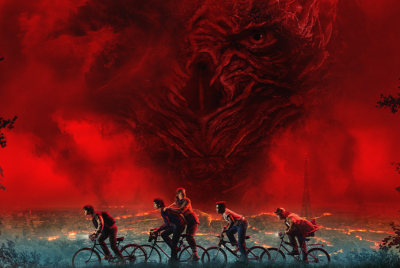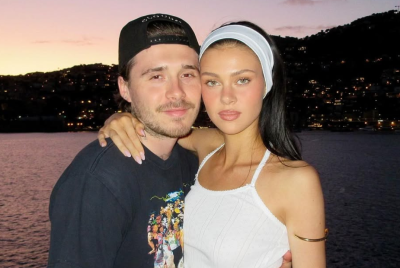Diane Keaton's Legacy: How She Redefined the Modern Woman on Screen
From Annie Hall to Something's Gotta Give, she defined authenticity

Few actresses have shaped the image of the modern woman quite like Diane Keaton. With her sharp wit, distinctive voice and unconventional style, she revolutionised the way women were portrayed in film — intelligent yet insecure, stylish yet self-effacing, vulnerable yet strong.
For more than five decades, Keaton built a career on characters who reflected real life rather than perfection.
From Annie Hall to Something's Gotta Give, she played women who were authentic, complicated and gloriously human. Her work blurred the line between performance and personality, offering audiences something that felt startlingly genuine in an industry built on illusion.
Breaking Boundaries with Annie Hall
It was Annie Hall in 1977 that cemented Keaton as a cultural force. Her portrayal of the eccentric, tender and delightfully unpredictable Annie redefined the romantic heroine for a generation.
Here was a woman who dressed for herself, spoke her mind and laughed at her own awkwardness, a departure from the polished ideals that had long dominated Hollywood.
Critics hailed the performance as a turning point, and Keaton won the Academy Award for Best Actress for a role that felt as unscripted as it was unforgettable.
A Career Built on Authenticity
Keaton's later roles continued to challenge convention. In Baby Boom, she captured the balancing act of career and motherhood with humour and heart. In The First Wives Club and Something's Gotta Give, she made middle-aged women visible, desirable and fiercely independent.
Her characters were never idealised; they were relatable. She showed that women could be powerful and messy, confident and uncertain, all at once.
Colleagues have often said Keaton didn't simply portray modern women — she embodied them. Bette Midler once said she made authenticity glamorous. Emma Stone called her the blueprint for actresses who wanted to play truth rather than perfection.
A Legacy That Still Inspires
Keaton's influence can be seen in every complex, unconventional female lead that followed — from Meg Ryan's neurotic charm to Frances McDormand's stoic strength and Phoebe Waller-Bridge's unapologetic humour.
She helped change the cinematic language of femininity, showing that imperfection could be magnetic and self-possession could be beautiful.
Even now, as Hollywood continues to evolve, Diane Keaton remains a touchstone — not just for her iconic performances, but for her fearless embrace of individuality.
By daring to be imperfect, she made authenticity fashionable, honesty cinematic and womanhood endlessly compelling.
Style as a Statement of Independence
Off-screen, Diane Keaton became a fashion icon in her own right. Her trademark look — tailored suits, wide-brimmed hats, high collars, and oversized glasses — challenged Hollywood's beauty norms and reflected her personal philosophy of self-expression over conformity.
In 2024, Keaton released 'Fashion First,' a retrospective book that explored her lifelong relationship with fashion. That same year, she collaborated with Look Optic to design an eyewear collection inspired by her signature frames.
Fashion critics praised her for embracing androgyny and comfort, turning menswear-inspired outfits into symbols of empowerment. The Washington Post described her distinctive wardrobe in its 2024 feature How Diane Keaton Redefined the Movie Star Look, noting how her style celebrated individuality and rejected Hollywood's conventional ideals of glamour.
Redefining Age and Romance on Screen
In later years, Keaton continued to challenge Hollywood stereotypes about women and ageing. Her performance in Something's Gotta Give (2003) opposite Jack Nicholson presented a fresh portrayal of a middle-aged woman navigating love, work, and self-discovery.
The role earned her another Oscar nomination and helped reshape perceptions of mature female leads, proving that romance and reinvention do not end at midlife. Critics called her performance 'a masterclass in charm and vulnerability'.
Her final screen appearance came in Summer Camp (2024), a comedy about friendship and rediscovery among women in their later years. Around the same time, she fulfilled a lifelong dream by releasing her debut holiday single, 'First Christmas.' Both projects demonstrated her creative range and willingness to evolve even in her late seventies.
Influence and Public Tributes
Following her death, tributes flooded social media from colleagues and fans alike. As reported by The Hollywood Reporter, actress Reese Witherspoon paid tribute to the late actress during her 'Shine Away' event in L.A.
Actress Mandi Moore also posted a heartfelt message, describing Keaton as 'One of the very best to ever do it.' Other stars including Kareena Kapoor, Elizabeth Banks, Kaley Cuoco, Vanessa Hudgens, and Ellen DeGeneres shared messages of admiration for the Annie Hall actress across social media platforms.
Younger actresses and filmmakers have long cited Keaton as an enduring influence. Barbie director Greta Gerwig previously said she dressed like Keaton while growing up, crediting Annie Hall for shaping her sense of individuality and humour.
Similarly, Emma Stone has often referred to Keaton as her 'style icon', saying she admires her for being 'so quintessentially herself'.
Media retrospectives have since highlighted how Keaton helped redefine the cinematic portrayal of women — complex, independent, and imperfectly real. Her impact spans beyond the screen, influencing not only film and fashion but also the wider conversation on women's agency and identity in modern storytelling.
© Copyright IBTimes 2025. All rights reserved.





















